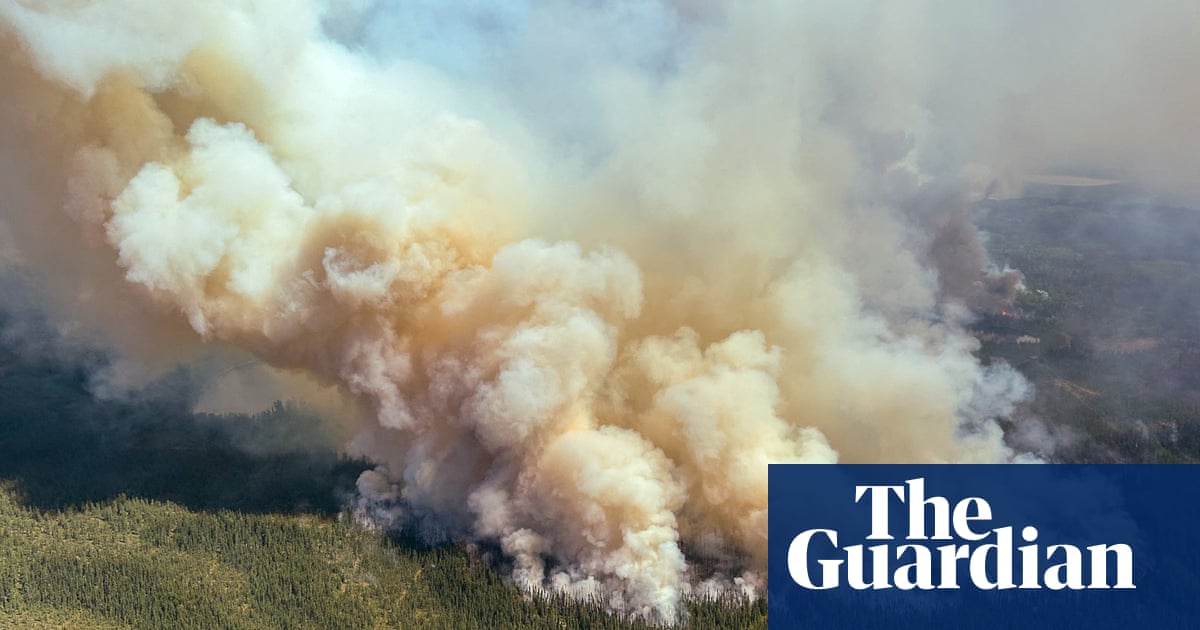- Get link
- X
- Other Apps
- Get link
- X
- Other Apps

Canada's Record-Breaking Wildfires Threaten Air Quality Across North America
Canada is currently grappling with an unprecedented surge of early-season wildfires, primarily across its prairie provinces. These blazes are not only stretching local emergency response capabilities but also posing a significant threat to air quality throughout eastern North America.
The sheer scale of the fires is alarming. The Bird River fire and the Border fire, both located in northern Manitoba, remain completely uncontained. To put the situation in perspective:
- In Manitoba alone, wildfires have already consumed approximately 200,000 hectares this year.
- This figure is about three times the recent full-year average for the province.
Mass Evacuations and States of Emergency
The severity of the situation has triggered massive evacuations. The Canadian military is actively involved in airlifting over 17,000 people from affected areas, some of which have been completely cut off from the rest of the country due to impassable roads.
In response to the crisis, both Manitoba and Saskatchewan have declared province-wide states of emergency:
- Wab Kinew, the Manitoba premier, made the declaration on Wednesday.
- Scott Moe, the Saskatchewan premier, followed suit on Thursday.
Kinew described the situation as "the largest evacuation Manitoba will have seen in most people's living memory," emphasizing that fires are now occurring in every region of the province – a stark indicator of a changing climate.
First Nations Communities Disproportionately Affected
First Nations communities in Saskatchewan have been particularly hard hit, with entire communities being evacuated, and some even temporarily trapped due to road closures. Drone footage has captured devastating scenes of towering flames and destroyed homes in northern Saskatchewan.
Wildfires are also impacting Alberta's oil country, disrupting production and necessitating further evacuations.
Smoke Drifting South: Air Quality Alerts Issued
Satellite images reveal extreme fire behavior, including the formation of pyrocumulus clouds, which are indicative of intensely hot fires. These clouds can transport smoke high into the atmosphere, allowing it to travel vast distances.
The US National Weather Service has already issued air quality alerts for parts of Minnesota, and forecasts predict that the smoke will continue to drift south into the United States in the coming days. This could significantly worsen air quality in major cities such as Chicago, Detroit, and Washington D.C., potentially reaching "red" category levels, indicating unhealthy conditions for everyone.
Climate Change: A Contributing Factor
A prolonged period of unusually warm and dry conditions has exacerbated the fires, aligning with the long-term trends associated with climate change. Notably, the fire seasons of 2023 and 2024 have been the worst in Canadian history.
Government forecasters anticipate that the fire seasons in Manitoba, Saskatchewan, Alberta, and British Columbia will remain "well above average" for the remainder of the spring and summer.
Emerging Health Concerns
The health implications of wildfire smoke are becoming increasingly clear through ongoing medical research. Recent studies suggest that exposure to wildfire smoke can have adverse effects on the heart and lungs for months after the smoke clears, and may also increase the risk of stroke, negatively impact brain function, and even interfere with fertility treatments.
Alarmingly, there appears to be no safe level of exposure to wildfire smoke, which can be significantly more toxic than typical urban air pollution. Some data indicates that thousands of people now die each year from wildfire smoke in the US, leading to billions of dollars in additional economic costs.
Protecting Yourself
Experts recommend taking the following precautions if you are exposed to wildfire smoke:
- Wear a fitted N95 or similar mask when outdoors.
- Use a portable air filtration system indoors.
The escalating wildfire situation in Canada serves as a stark reminder of the growing challenges posed by climate change and the urgent need for proactive measures to mitigate its impacts and protect public health.
Source: https://www.theguardian.com/us-news/2025/may/30/canada-wildfires-air-quality
Air quality
Bird River fire
Border fire
Canada wildfires
Manitoba fires
Prairie fires
Scott Moe
State of emergency
Wab Kinew
Wildfire evacuation
- Get link
- X
- Other Apps
Comments
Post a Comment